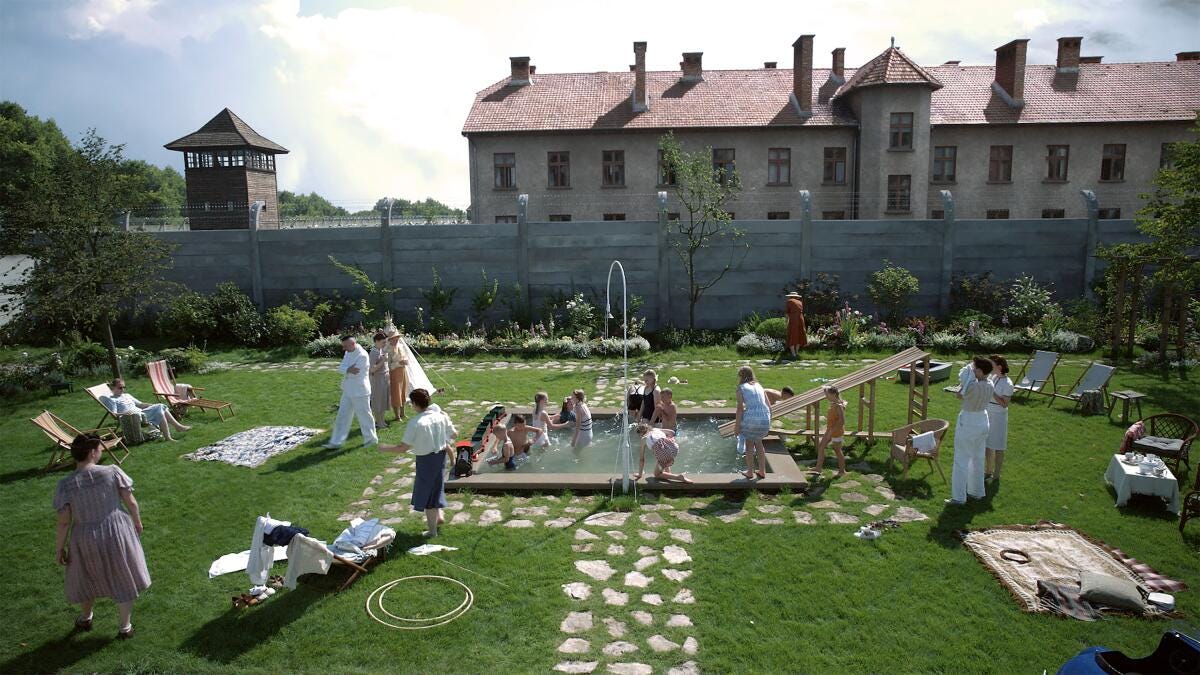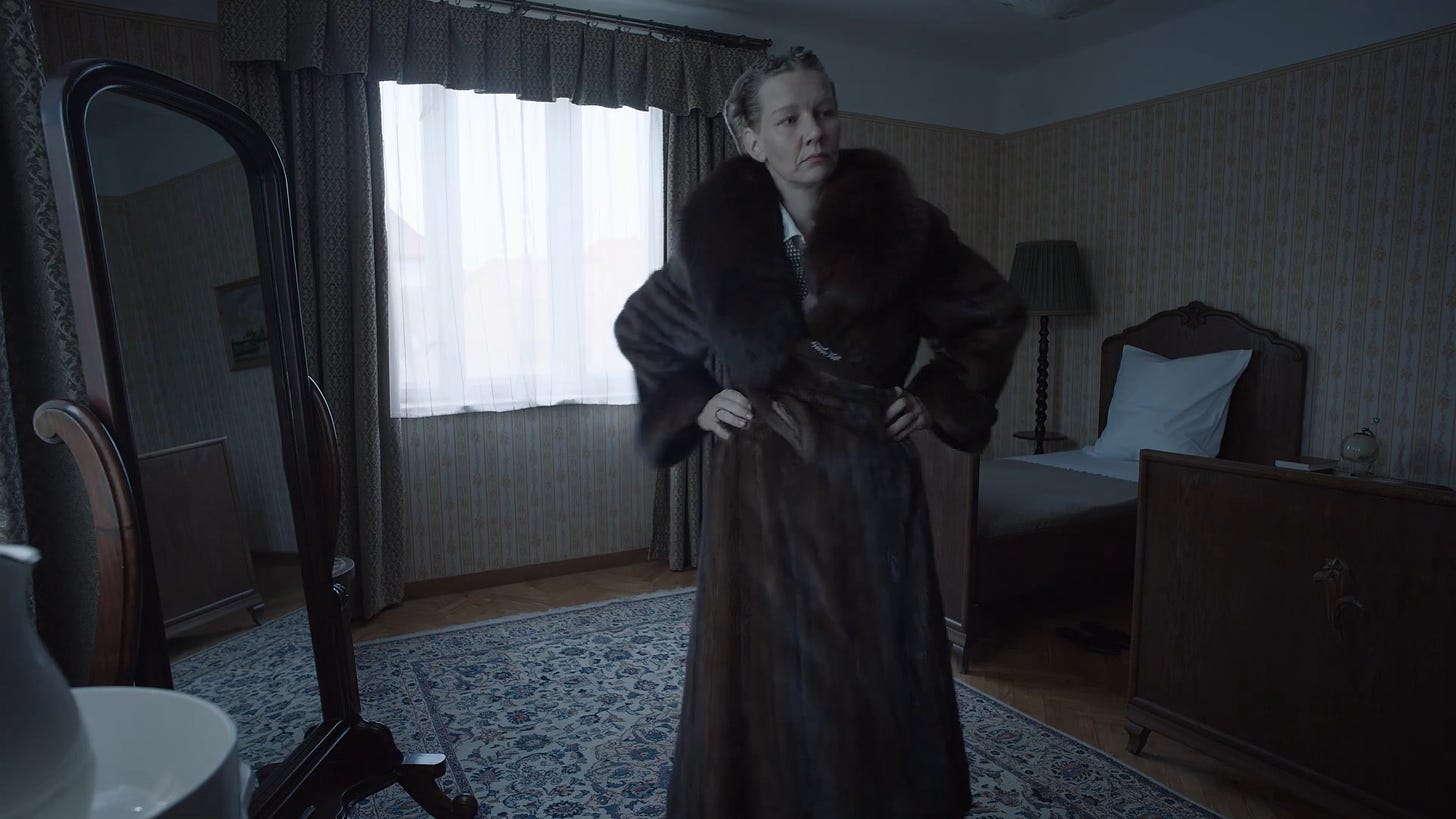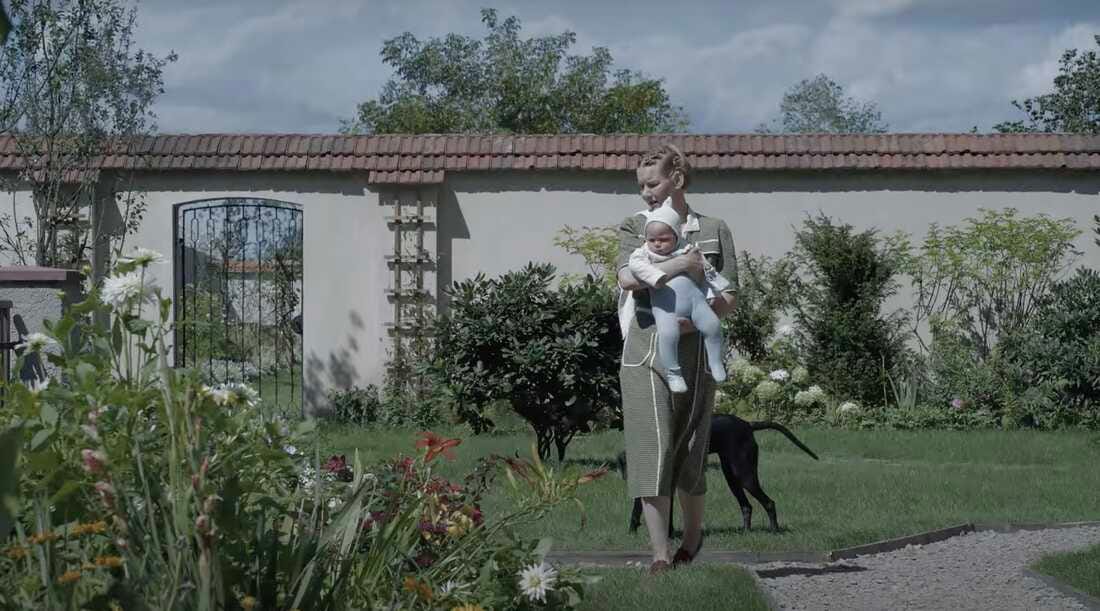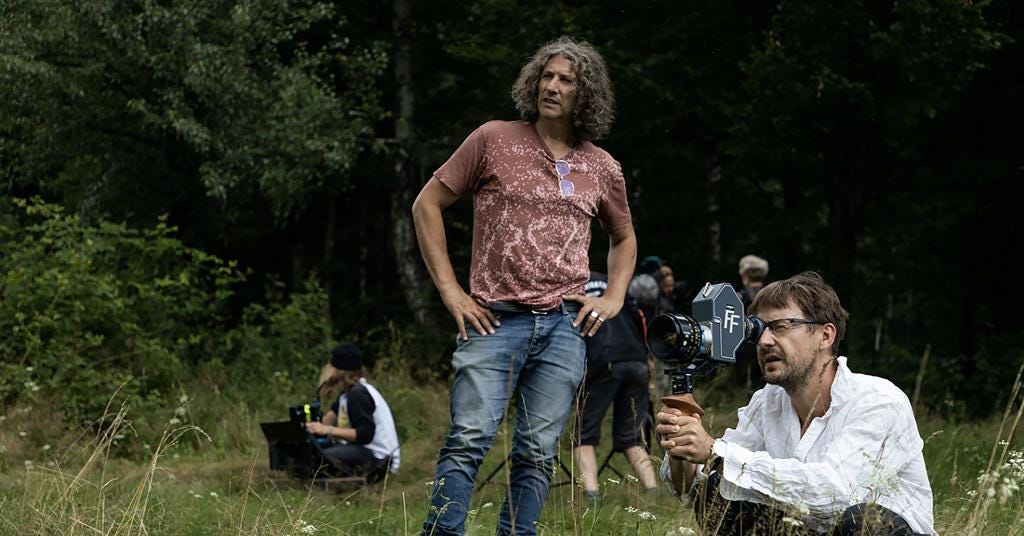Human Lens #142: 'The Zone of Interest' Review
Haunting would be an understatement for this Holocaust drama
There is no shortage of affectingly somber Holocaust cinema throughout film history. Whether it be the visceral feeling that comes from Liam Neeson’s compassionate performance of heroism in Steven Spielberg’s masterwork Schindler’s List, the whimsy that a father refuses to let his child lose in Life is Beautiful, or the heart wrenching slow burn loss of humanity in The Pianist, filmmakers have rarely shied away from telling stories that will leave the audience feeling uncomfortable and emotionally moved. This trend doesn’t change in the latest installment in this pantheon from filmmaker Jonathan Glazer. The writer/director is interested in making his viewers uncomfortable, mastering it in his 2013 science fiction indie aptly titled Under the Skin. In that film, as well as his first film since, Glazer explores how the subtext of violence is actually more spine chilling than the actual acts that the worst of inflict upon others.
The Zone of Interest, Glazer’s first film in a decade, follows the family of Rudolf Höss, the commandant of Auschwitz, as he and his wife sift through the politics of their nation to build a dream life for their family in the shadow of the horrible atrocities within the camp next door.
While the synopsis for the film makes it sound as if the Höss family will undergo a period of guilt ridden second-guessing for their position, what the audience actually gets is a feature length film of what the peak of evil looks like. This family has no regard for others, living in their own little bubble, somehow ignoring the contrast between their illustrious estate and the sounds of violence and torture over the simple concrete wall that separates them from the atrocities they’ve accepted and produced. It’s a hard watch, yet it’s a stark contrast to the media that audiences are craving lately which is what makes it so alluring. As the news gets harder and harder to stomach outside of the theater, audiences look for an escape of uplifting stories where people are less cruel to one another. The Zone of Interest has no happy ending, and it’s not interested in showing you the good guys of this story. The different point of view will leave audiences divisibly uncomfortable, but that’s ultimately why it’s gotten so much awards attention in the first place. It sticks with you long after the credits finish rolling and the lights come up.

While the audience is subjected to camera positions and angles that just peak over the wall, showing a tease of the glum conditions the Jewish populace was subjected to, the Höss family never looks up. Their consistency at having guests over and hosting family for meetings and parties never comes with moral discussions. In fact, feelings and discussions of jealousy surrounding who got what from their Jewish neighbors is common place for these people. It’s a disgusting amalgamation of a time when the most evil people were able to control anything and everything without their neighbors standing up for what’s right.
While many films centered around the Holocaust have shown the atrocities within the walls of these concentration camps, Glazer finds the power of fear through assumption, never leaping onto that horrid side of the wall. The sound design within the film teases horrors that we can only paint with our minds eye, coloring in images far worse than anything Glazer can show us, and worse even than anything we’ve seen in depictions of this depressing era of history before. It provides a forced perspective that puts the disgust toward the example this family is setting for their kids, and the rest of the future generation in Germany at this time, and the comfortability that should have never existed. As guttural screams echo throughout the night, this family sleeps soundly. While the Holocaust was an incredibly severe case, generational hatred and hive mind rhetoric has been relevant throughout all facets of history, affecting the beliefs of different subsections of class and cultural humanity into judgmental ideologies.

The most horrifying aspect of the film comes from how natural it feels, something Glazer and his team wanted to evoke as best they could to mirror history. Cameras were hidden and placed at wide angles in the corners of rooms to allow the actors to move around and simply live as these characters, while also providing the fly on a wall feeling that adds to the lifelike ferocity of these people’s actions.
But as we know from history, the Nazi’s eventually get what’s coming to them. While their end and the end of the Höss family are not shown on screen, there’s a brilliant fast forward to present day showing the devastating impact of what Höss and the Nazi’s created with their pure hatred. Looking toward that future, Commandant Höss thinks nothing of it, willingly descending the stairs of his office building into the unlit bowls below, stepping into the hell of his own making, and the hell of the Nazi’s inevitable defeat at the hands of humanity’s inherent nature for goodness to prevail.




